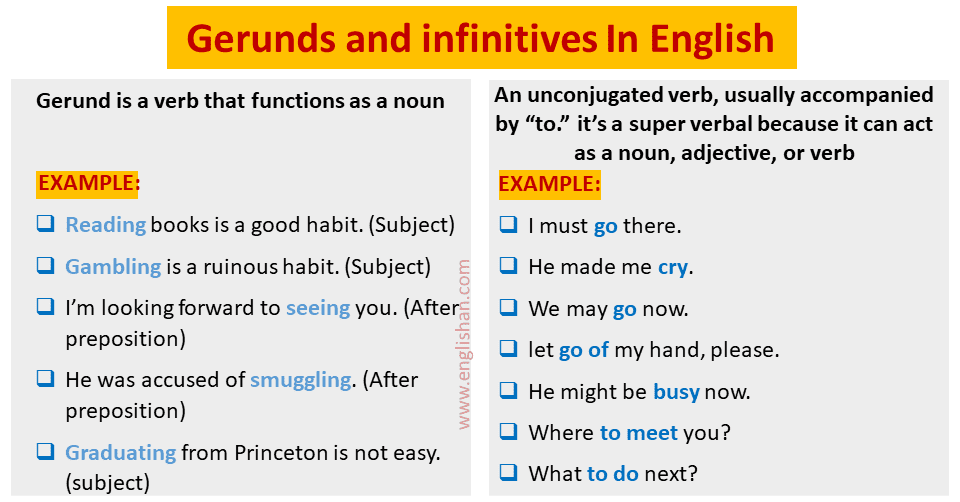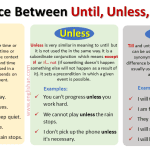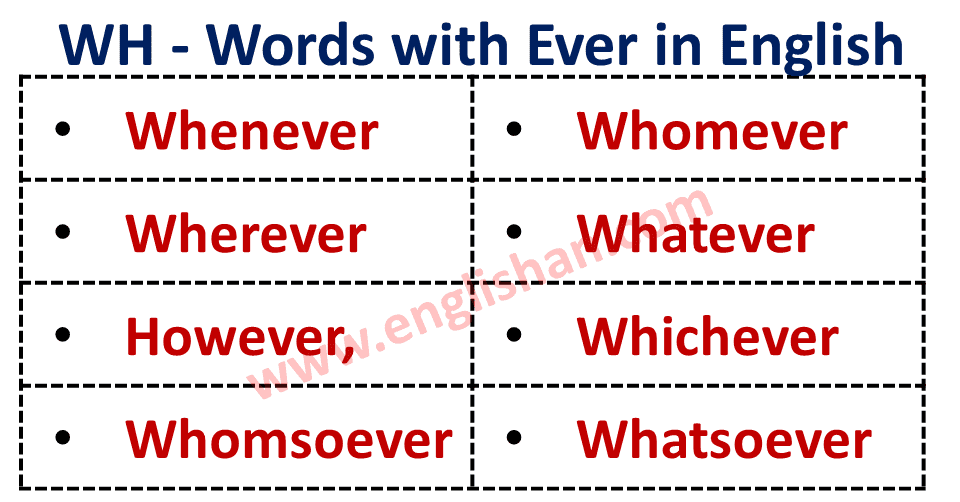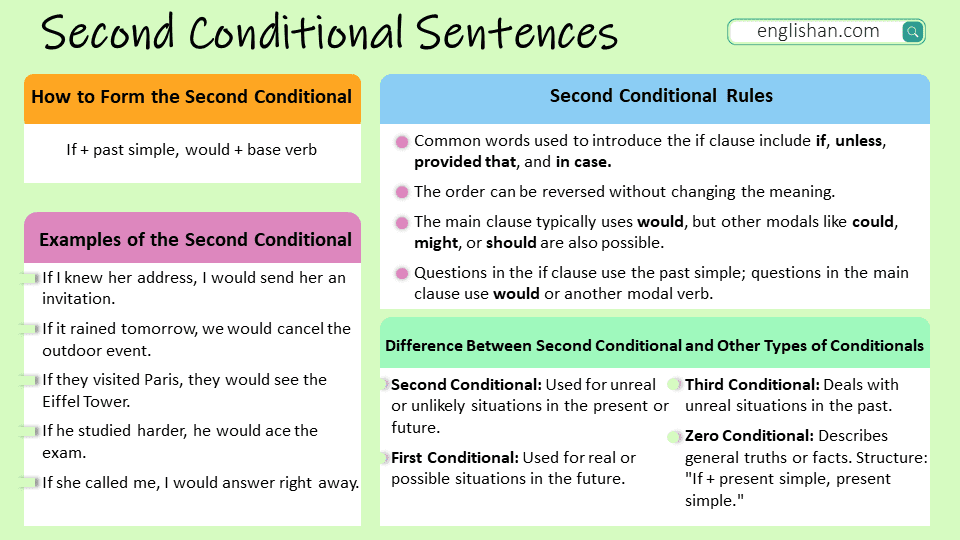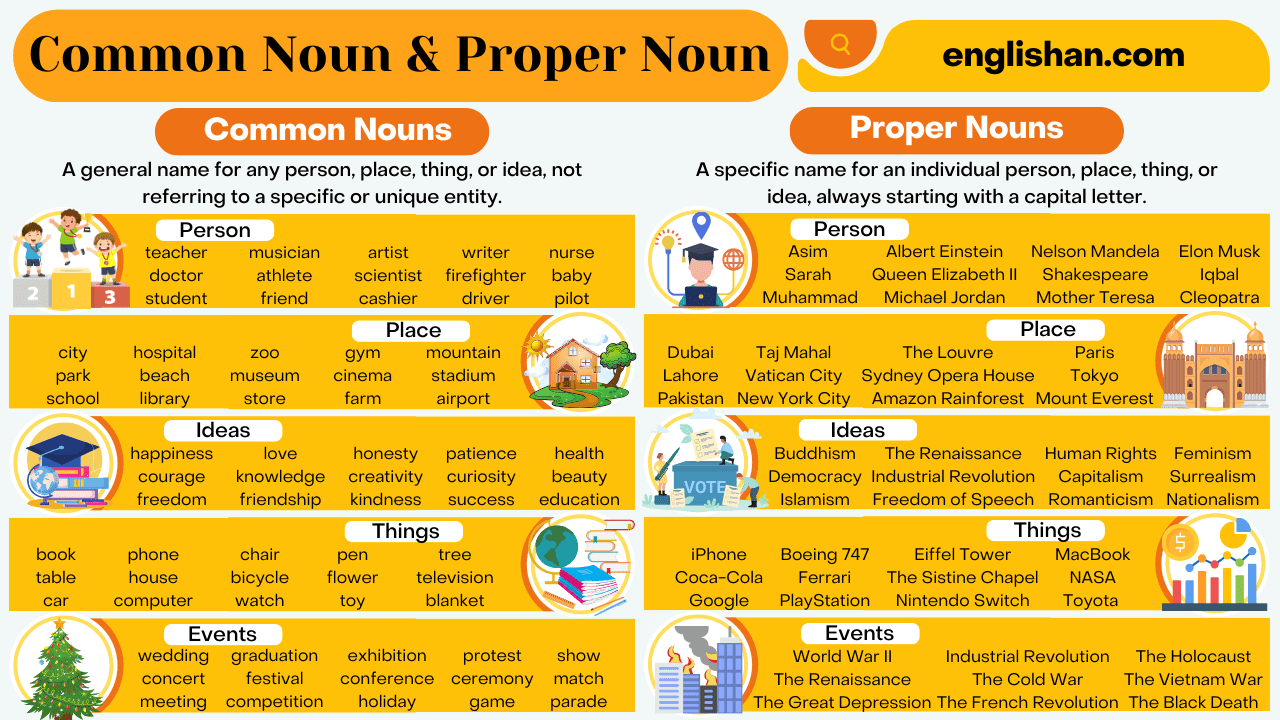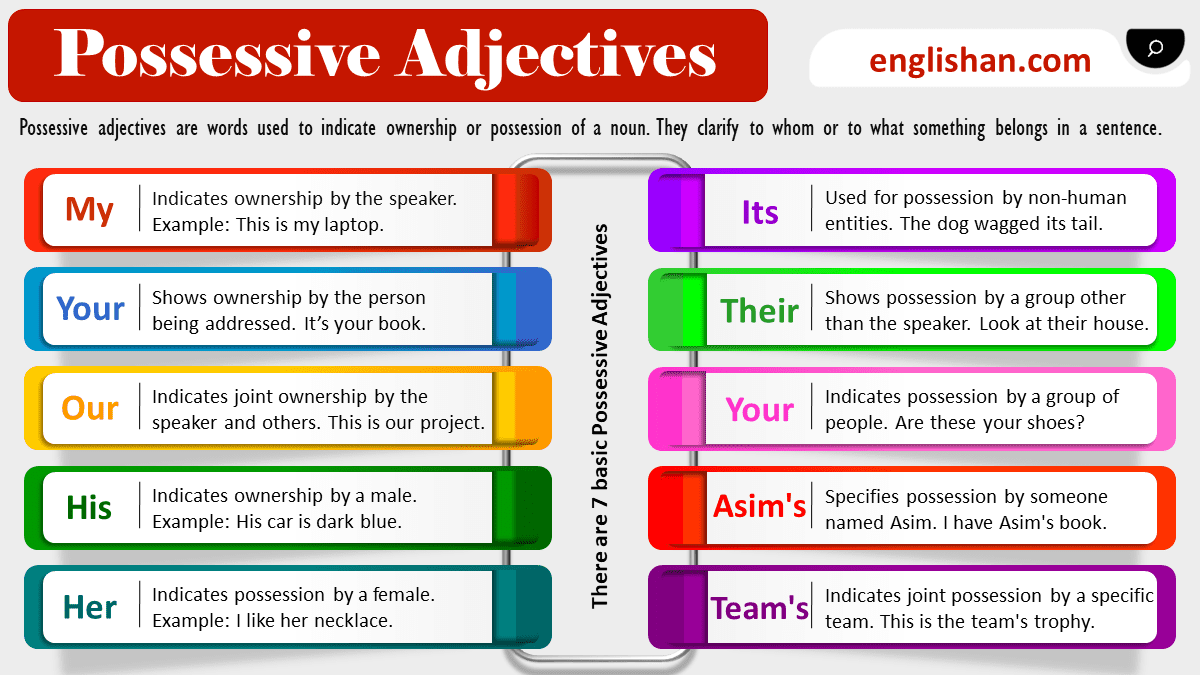Gerunds and infinitive
As we know that verbs are classified in different ways like action verbs, non-action verbs, modal verbs, regular and irregular verbs, etc. Similarly, verbs are also classified as finite and non-finite verbs. Finite means restricted and non-finite means unrestricted, Finite verbs are those that change their form when we change the number, (singular, plural) person, (first second, third), or tense (past, present, future) of a sentence. But non-finite verbs do not change their form even if we change the number, person, or tense of a sentence. They remain the same everywhere. Non-finite verbs are further divided into three categories, gerunds, infinitives, and participles, and here we will explain gerunds and infinitives with several examples.
Gerunds (v¹ + ing)
The present participle (-ing) form of a verb that acts as a noun in a sentence is called a Gerund. Gerund shows activity in a sentence. They don’t perform any action in a sentence. For example,
I like swimming.
In this sentence swimming is not an action verb Nobody is swimming here, it’s acting as a noun here just like a swimming pool, and “Like” is our main verb
We cannot use gerunds without the main verb and after ing. Although a gerund looks like a verb, in function gerund and participle are quite different like gerund functions as a noun whereas a present participle acts as an adjective in a sentence. For example,
He started running. (Gerund)
He is running. (the present participle)
We can use gerunds as a subject, object, or as complement in a sentence. Unlike the main verb, there is no helping verb with a gerund. Gerunds are mostly used in sentences about actions that are real or complete. And Gerunds do not change as per number, person, or tense. For example,
I am tired of arguing.
They were tired of arguing.
You will get tired of arguing.
Here the numbers are changing (I singular, we plural) persons are changing ( I 1st person, you 2nd person, they 3rd person) tenses are also changing (am present, were past, will future) But all these changes are not affecting the Gerund (arguing) it is the same everywhere.
Examples,
Gerunds as a subject, direct object, indirect object, after a preposition, and as a compliment
Smiling is an art. (Subject)
I couldn’t help laughing. (Complement)
She loves cooking. (Object)
I like playing cricket. (Complement)
He avoids talking with me. (Complement)
Reading books is a good habit. (Subject)
Gambling is a ruinous habit. (Subject)
I’m looking forward to seeing you. (After preposition)
He was accused of smuggling. (After preposition)
Graduating from Princeton is not easy. (subject)
My favorite activity is singing. (Object)
Do you love teaching? (Object)
He is thinking of migrating. (After preposition)
He adjourned today’s meeting. (object)
There are some exceptional expressions after which we only use gerunds. For example
There is no point in… (waiting, regretting, losing, winning, etc.)
Something is worth… (buying, or watching)
It’s no use/ good… (arguing, worrying, crying, etc.)
Gerund And Infinitive
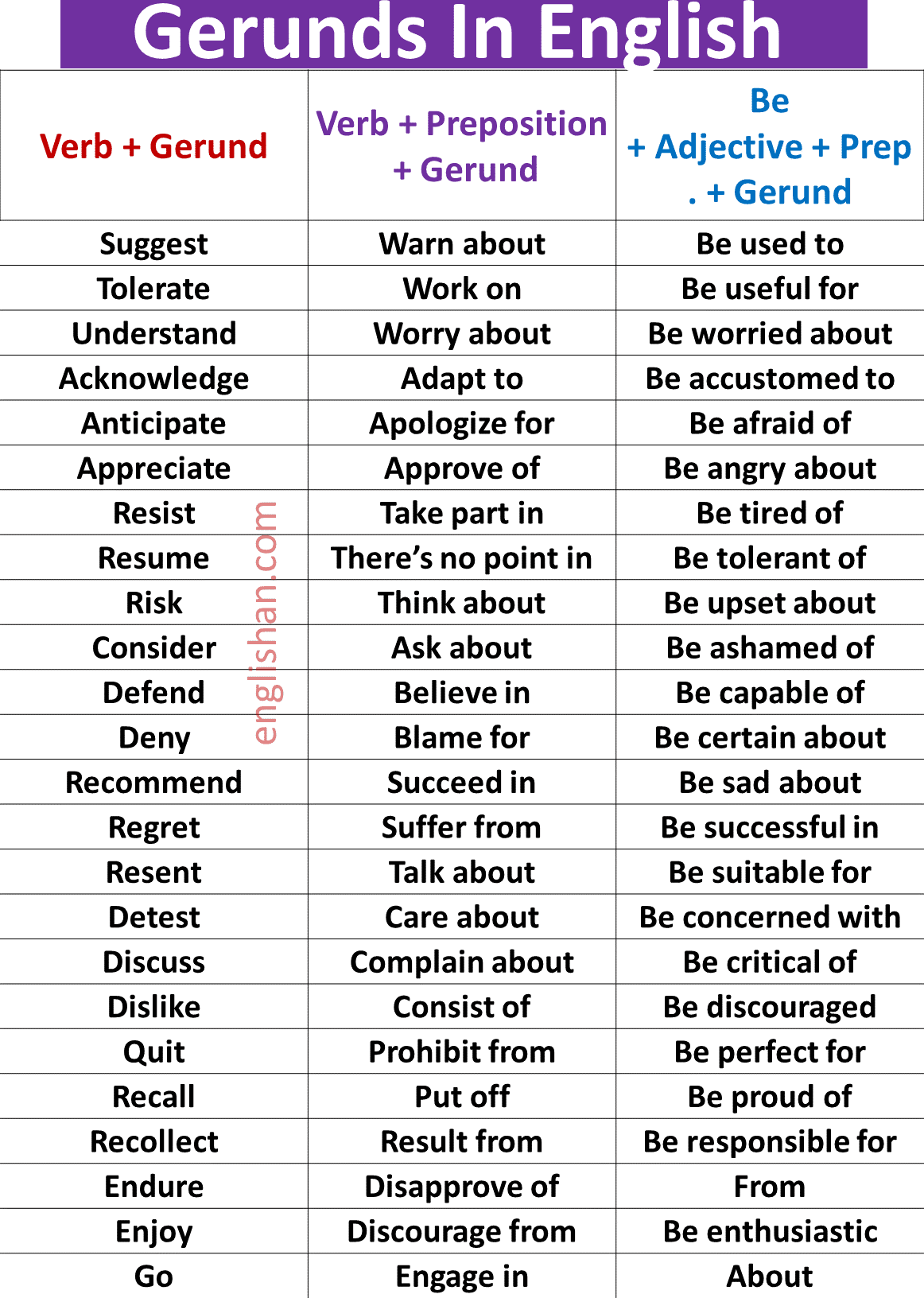
Infinitives
(to + v¹)
A base form of a verb that is usually used with “to” and acts as a noun adjective or as an adverb in a sentence is called an infinitive. For example, to read, to play, to go, to pretend, etc.
I like to read fantasy books.
Walking in the morning is a good habit.
Titanic is the movie to watch.
The infinitive is not the main verb and does not change as per number, person, or tense. Mostly infinitives are used to tell a purpose and express commands and instructions.
Swimming in that sea may be dangerous. (instructions)
We are ready to go there. (purpose)
We cannot use an infinitive if there is a preposition after the verb in the sentence. Infinitives are mostly used in sentences about actions that are unreal and will occur in the future. Sometimes we used infinitives to avoid repetition for example,
Do you like these cartoons?
No, but I used to.
Infinitives can be used as a subject, object, or as a complement in a sentence.
For example,
To err is human, to forgive is divine. (subject)
To laugh at others is not good. (subject)
I have to go now. (Object)
He swears to tell the truth. (compliment)
I enjoy reading comic books. (object)
He decided to go home. (object)
It’s starting to rain. (Complement)
Bare infinitives (without to)
Some infinitives that are used without “to” are called bare infinitives. And these infinitives are mostly used after model verbs, perception verbs, or with let, make, do, and WH family,
For example,
I must go there.
He made me cry.
We may go now.
let go of my hand, please.
He might be busy now.
Where to meet you?
What to do next?
How does she like to play?
Some verbs are always followed by a gerund.
For example, avoid, explain, finish, can’t help, feel like, postpone, admit, forgive, consider, delay, appreciate, recommend, suggest deny, etc.
He avoids talking to me.☑️
He avoids talking to me.❎
I enjoy reading the comments.☑️
I enjoy reading the comments.❎
Some verbs are always followed By infinitives.
For example, agree, attempt, desire, refuse, forget, demand, arrange, request, prepare, afford, learn, hope, fail, etc.
I agreed to travel with him.❎
I agreed to travel with him. ☑️
I want to go to Lahore.☑️
I want to go to Lahore.❎
Some verbs followed by either of two (gerunds, incentives)
For example, continue, love, like, prefer, forget, stop, quit, remember, regret, begin, try ,etc.
I remember locking the door.☑️
I remember to lock the door.☑️
I love playing cricket.☑️
I love to play cricket.☑️
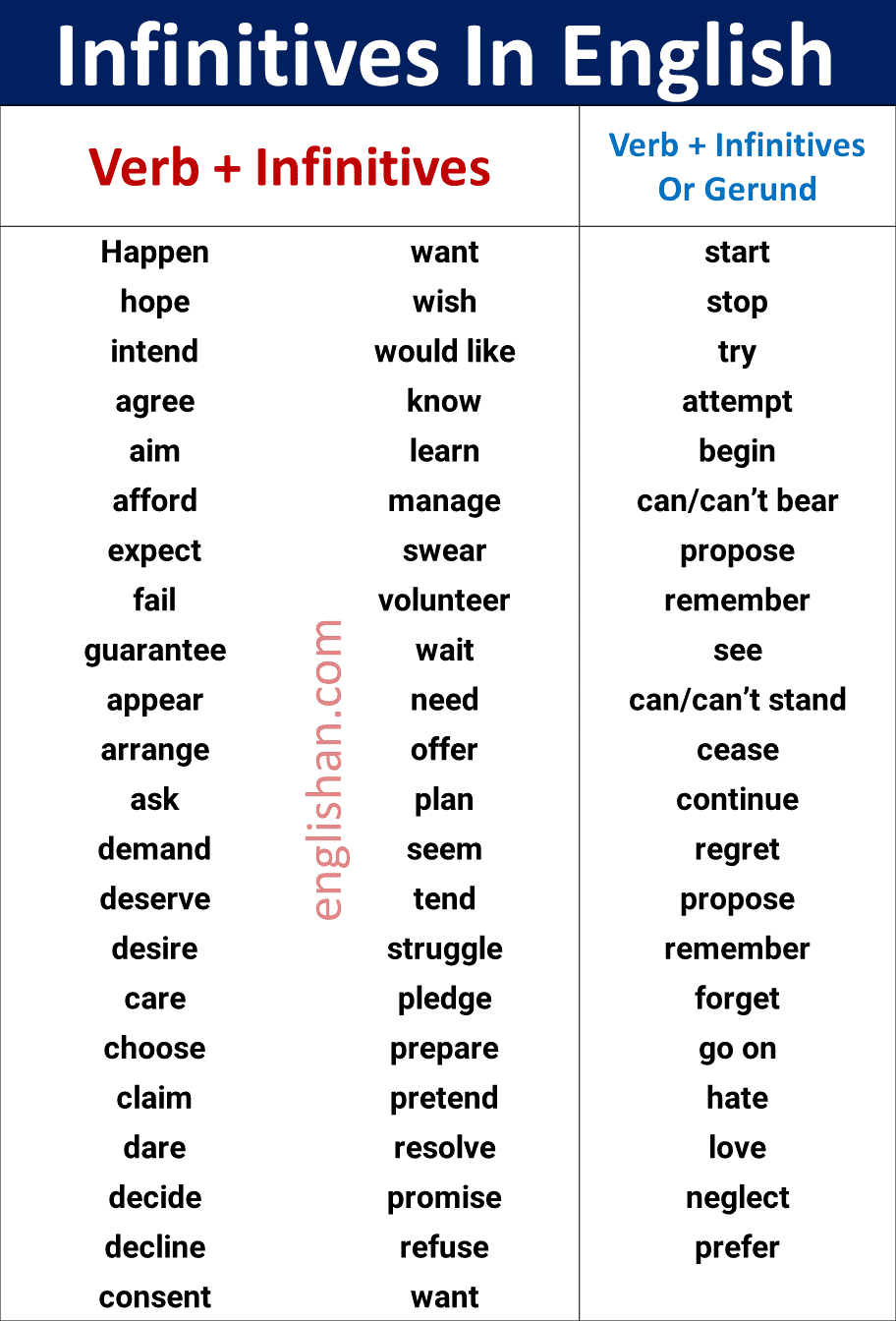
FAQs
Infinitives (to run) show purpose or follow certain verbs (want to go). Gerunds (running) act as subjects (Swimming is fun), follow verbs (enjoy reading), or come after prepositions (good at dancing). Some verbs take both with different meanings (stop to eat vs. stop eating).
1. Gerunds (-ing verbs) act as nouns (Swimming is fun).
2. They follow certain verbs (enjoy reading).
3. They come after prepositions (good at dancing).
An infinitive is “to + verb” (to eat, to play) and shows purpose or follows verbs (I want to play).
A gerund is a verb ending in “-ing” (eating, playing) and acts as a noun (Swimming is fun).
1. Infinitive (to run): Acts as a noun, adjective, or adverb (I want to run).
2. Gerund (running): Acts as a noun (Running is fun).
3. Participle (running or run): Acts as an adjective (The running water is cold).
Each has a unique function in sentences!
Use a gerund (-ing) after verbs like enjoy (I enjoy reading). Use an infinitive (to + verb) after verbs like want (I want to read). Some verbs can use both, but the meaning changes (I stopped eating vs. I stopped to eat).
Here’s a super-short version:
Gerund: A verb acting like a noun (thing or activity).
Example: Swimming is fun.
Participle: A verb acting like an adjective (describes something).
Example: The laughing boy is happy.
Quick Tip: If the -ing word is a thing or activity, it’s a gerund. If it’s describing something, it’s a participle.
You May Also Like
